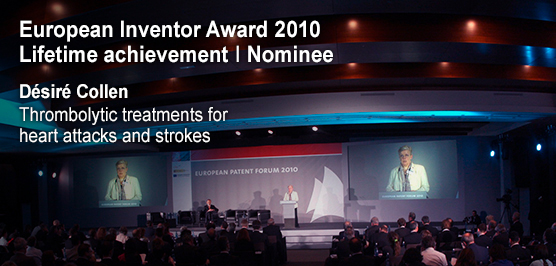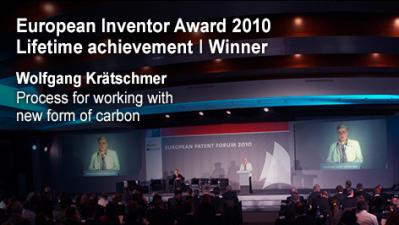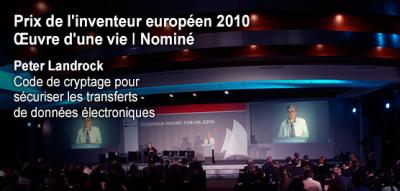Désiré Collen
Thrombolytic treatments for heart attacks and strokes
The human heart is a tireless workhorse. It beats over two billion times during the average human life span, pumping more than 500 million litres of blood through the circulatory system.
An obstruction in blood flow - also called a "clot" or "thrombus" - can lead to dangerous complications, the most serious of all being acute myocardial infarction - or "heart attack" - and brain stroke.
Both are killers: diseases of the heart and circulatory system are the leading cause of death in the European Union and claimed about two million lives in 2009. Strokes are the second most common cause with over half a million deaths.
Currently the most effective emergency medication for dissolving blood clots is a drug named "Activase". It was developed by molecular biologist Désiré Collen from Belgium. The 66-year-old is credited with landmark advancements in the clinical treatment and scientific understanding of circulatory diseases.
The mechanics of blood coagulation fascinated Désiré Collen even as a young student. After graduating with his MD from Leuven in 1968, Collen focused on a process known as "fibronolysis"; the dissolving (Greek "lysis") of blood clots made from the protein fibrin.
Fibrin is responsible for the coagulation of blood during wound healing - a necessary part of human survival. But when fibrin clots remain, they can cause strokes or heart attacks. In 1970, Collen discovered that under healthy conditions, fibrin is broken down by an enzyme known as plasmin.
In 1980, he identified the main trigger for the release of plasmin into the blood stream: a protein called tissue plasminogen activator (t-PA).
Collen isolated t-PA in his Leuven laboratory and published his success internationally. He managed to clone t-PA for use as a drug in 1981.
Activase was approved in the US in 1987 for the treatment of heart attacks, and for strokes in 1996. A major success, Activase grossed $58 million in revenue within seven weeks. Marketed in Europe as "Actilyse", it has been used on an estimated 250 000 patients per year since its introduction.
The success of t-PA brought Collen's laboratory more than $150 million in royalty payments, which Collen used to expand systematically the Center for Molecular and Vascular Biology at Leuven and the Center for Transgene Technology and Gene Therapy at Flanders University.
Constantly pursuing the translation of research into medical practice, Désiré Collen also founded his own company, ThromboGenics.
Contact
European Inventor Award and Young Inventors Prize queries:
european-inventor@epo.org Subscribe to the European Inventor Award newsletterMedia-related queries:
Contact our Press team#InventorAward #YoungInventors


